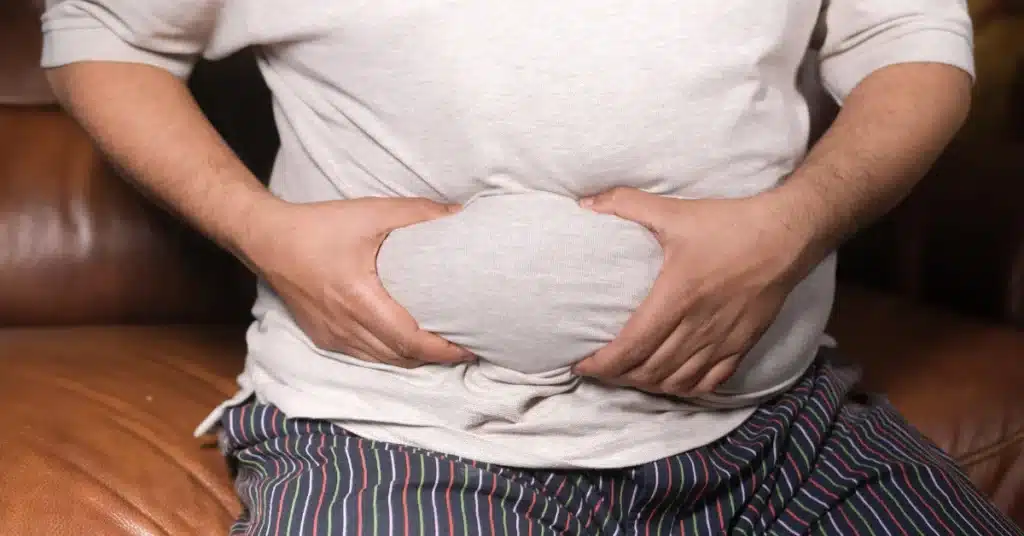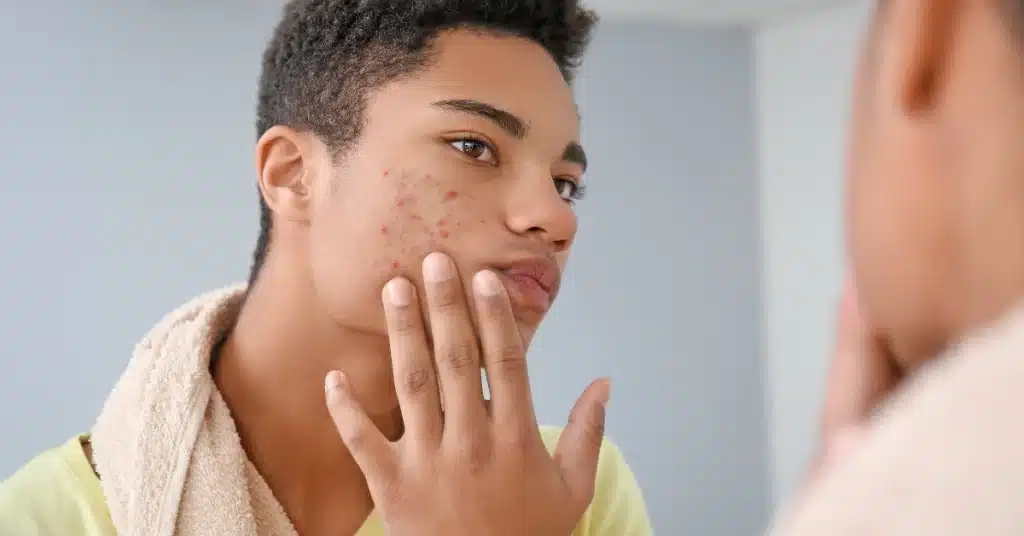Low testosterone, medically known as Hypogonadism, is a condition that involves the insufficient production of the hormone testosterone.
The hormone plays an important role in both males and females. Abnormal testosterone levels can lead to various physical, emotional, sexual, and reproductive health concerns.
As a result, low testosterone can have various side effects that require proper management.
Recognizing the symptoms of low testosterone and understanding its potential effects can help in early detection.
This article covers the common side effects of low testosterone in men and women and its impact on health.
Side effects of low testosterone in men
Low testosterone symptoms in men might include potential impact on physical, emotional, and reproductive health.
Low testosterone levels can affect your strength, sexual function, emotional well-being, fertility, and quality of life.
The common signs of low testosterone in men include:
- Low sex drive
- Erectile Dysfunction
- Low sperm count
- Reduced muscle mass and strength
- Reduced bone density
- Low energy level and fatigue
- Increased body fat
- Changes in mood, irritability, and Depression
- Trouble focusing and memory problems
- Hot flashes
Let us take a closer look at the physical, psychological, and sexual side effects of low testosterone.
Physical side effects
 Source: tongwoongboot
Source: tongwoongbootThe physical side effects of low testosterone in males include reduced muscle mass, strength, and bone density, increased body fat, and sexual dysfunction.
Hormonal imbalances can contribute to Erectile Dysfunction (ED) and affect sexual satisfaction and relationships.
Low testosterone can also reduce muscle mass and strength, affecting physical performance and general well-being.
Individuals with low testosterone may experience increased body fat percentage and changes in metabolism and body composition.
It may also reduce bone density, raising the risk of Osteoporosis (brittle bones) and fractures.
Learn about the relationship between testosterone and Erectile Dysfunction — Read: Can Low Testosterone Cause ED?
Emotional and psychological effects
Having low testosterone levels can negatively impact emotional and psychological well-being.
The emotional symptoms of low testosterone include mood swings, depression, and lack of motivation. It also impacts cognitive function and memory.
Low testosterone levels can often lead to mood swings.
It can reduce motivation and energy levels, influencing overall quality of life and daily functioning.
It can also lead to a reduced interest in sex or contribute to factors like low libido in men.
Low testosterone levels may also affect cognitive function and memory, potentially reducing mental clarity and focus.
Impact on reproductive health
Low testosterone levels may affect a man’s reproductive health. It can cause a decline in sperm production (Oligospermia), which may affect fertility.
Also, low testosterone levels can contribute to Erectile Dysfunction (ED), which can make it difficult to achieve and sustain an erection.
Problems with erections and sperm production can present challenges for couples attempting to conceive.
Seeking medical advice and treatment for low testosterone is crucial for addressing these issues and improving reproductive health.
Side effects of low testosterone in women
Women typically have lower levels of testosterone than men, but it still has a notable impact on their health.
Potential side effects of low testosterone levels in women may include low libido, irregular menstrual cycles, and mood swings.
- Low libido: Low testosterone contributes to a decrease in sexual desire and arousal
- Irregular menstrual cycles: Hormonal imbalances (including changes in testosterone levels) can influence menstrual cycles, affecting their regularity
- Changes in mood: Women with low testosterone may experience frequent changes in mood, which may affect their emotional well-being
Low testosterone treatment side effects
 Source: pixelshot
Source: pixelshotLow testosterone may have several negative effects on health, so it is essential to get treatment.
The treatment for low testosterone usually involves Testosterone Replacement Therapy (TRT), such as pills and gel.
However, it should be noted that testosterone pills may also have potential side effects, which can include:
- Some individuals may experience acne and other skin concerns
- Hormone Replacement Therapy may lead to fluid retention and swelling in some individuals
- Gynecomastia, or breast enlargement in men, can occur as a potential side effect of treatment
While addressing low testosterone symptoms in men is essential, TRT requires careful monitoring by a healthcare provider.
Testosterone Replacement Therapy affects the hormonal balance of the body. Therefore, it is important to exercise caution and control.
Read more about the potential impact of TRT in men: A Comprehensive Guide to Testosterone Pills Side Effects
Summing up
Low testosterone may have potential effects on both men and women. It may lead to various physical, emotional, and reproductive health issues.
Low testosterone’s symptoms or side effects may be worth discussing with a healthcare professional.
Seeking medical advice from a doctor is suggested for accurate diagnosis and treatment.
Treatment for low testosterone, which involves TRT, is a specialized and sensitive therapy.
It is advised to seek the guidance of a medical professional when considering this, as there may be potential side effects.
Frequently Asked Questions
Can low testosterone affect my mood and mental well-being?
Yes, low testosterone levels can affect your mood, leading to frequent mood swings, irritability, and feelings of depression.
Are there potential complications if low testosterone is left untreated?
Untreated low testosterone may lead to long-term health effects, such as Osteoporosis, reduced quality of life, and potential cardiovascular issues.
What should I do if I suspect I have low testosterone?
You must seek guidance from a healthcare provider for a thorough evaluation, diagnosis, and tailored treatment options.
Is low testosterone a normal part of aging?
Yes, testosterone levels in men naturally decline with age. However, excessively low levels can lead to health issues and may need treatment.
Can lifestyle changes help manage low testosterone?
Adopting a healthy lifestyle with regular exercise, a healthy diet, and stress management can help manage hormonal imbalances.
When referencing outside resources, GoodrxMedicine always provides full citations. To learn more about the measures we use to maintain the quality of our content, please review our Content Information Policy.











